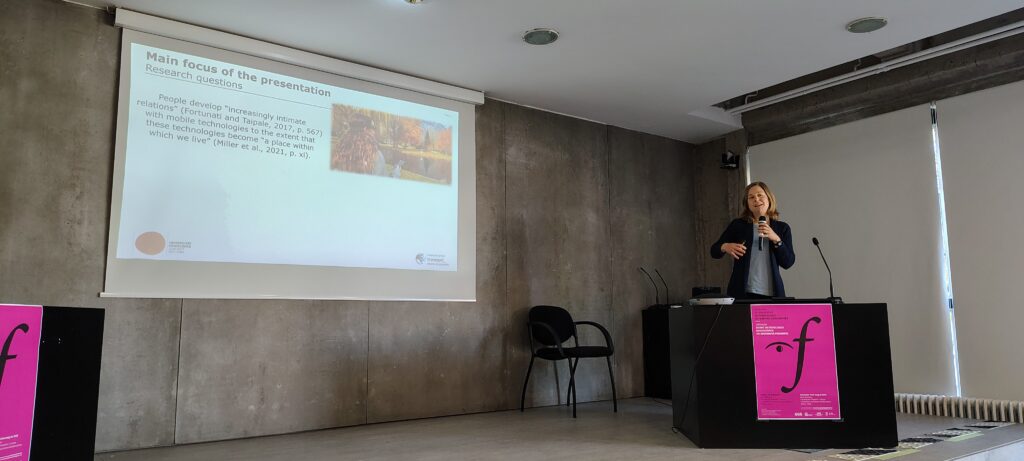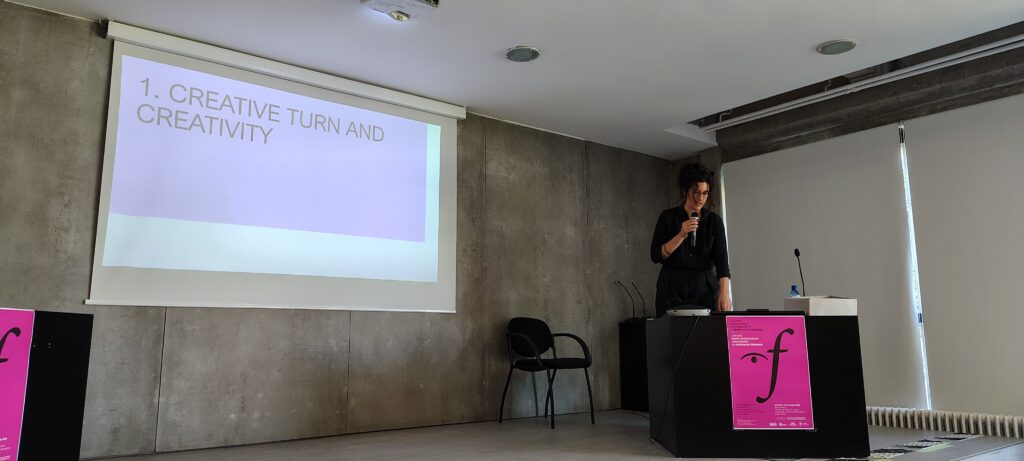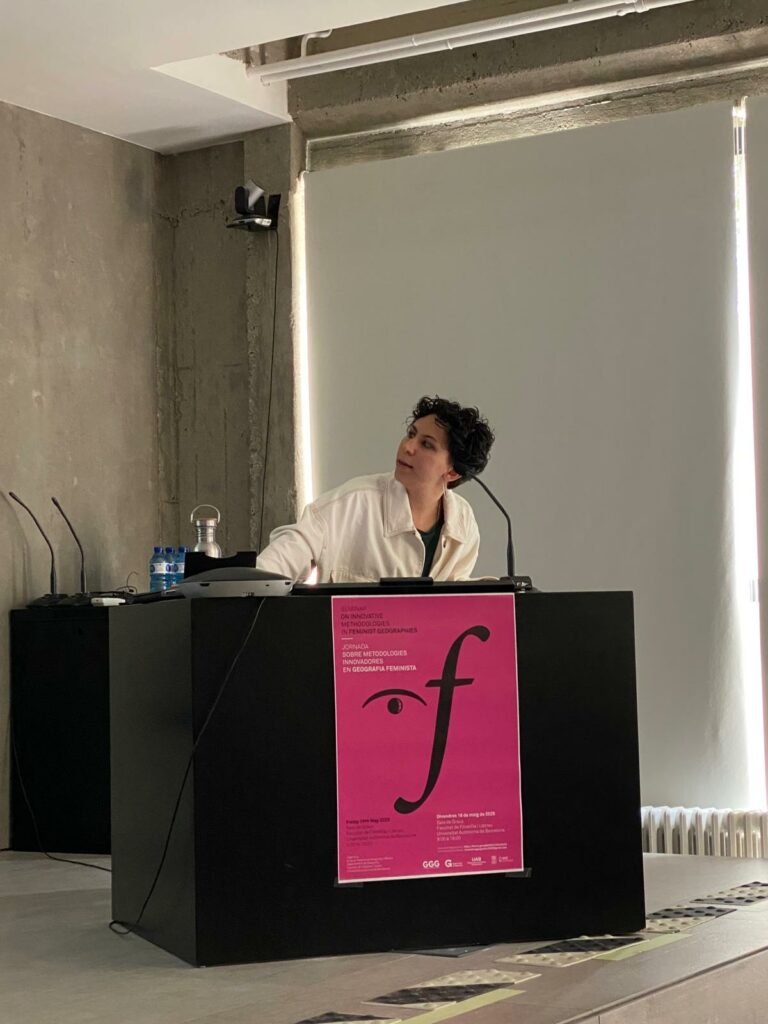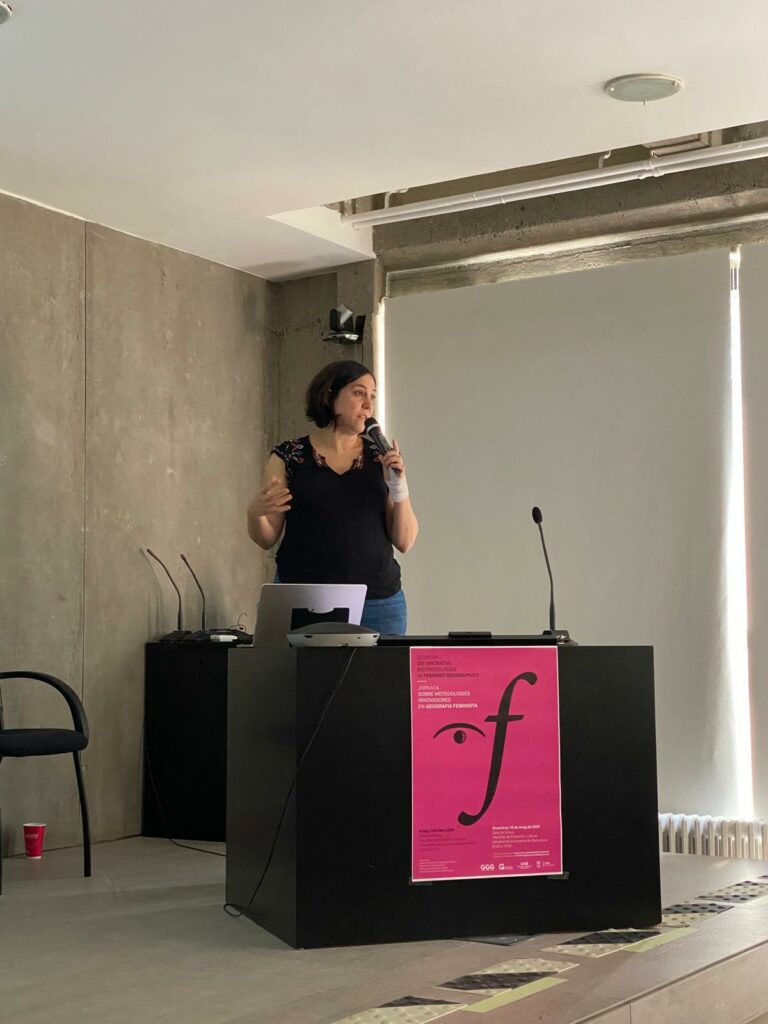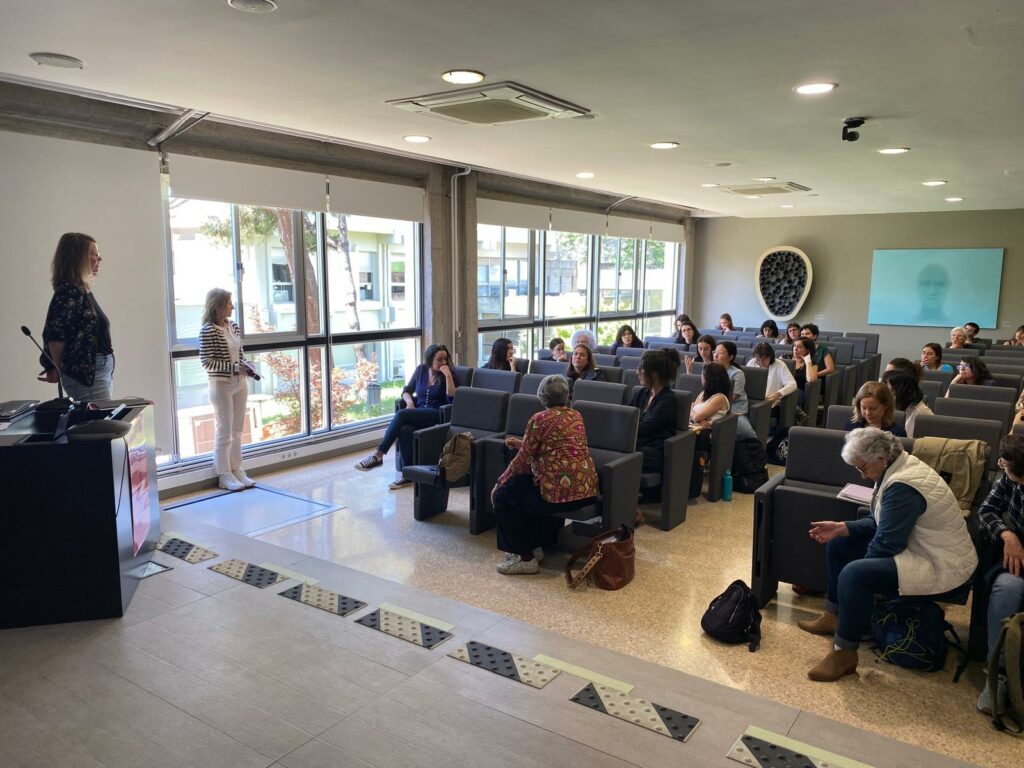Researchers from diverse contexts shared tools and creative approaches to rethink space and inequality through feminist lenses
On Friday, May 16th, 2025, the Sala de Graus of the Faculty of Philosophy and Arts at the UAB hosted the Seminar on Innovative Methodologies in Feminist Geographies, organized by the Gender and Geography Research Group. The event brought together researchers, students, and others interested in critical and methodological approaches to space from a feminist perspective, offering a full day of exchange and collective learning.
The goal of the seminar was to foster reflection on innovative ways of conducting feminist geographic research, highlighting how methodologies can help make visible socio-spatial inequalities and systems of domination that shape our territories. Throughout the day, six researchers from different academic and geographical backgrounds presented their projects, showcasing diverse, creative, and engaged methodological proposals.
The day began with a presentation by Tabea Bork-Hüffer (Heidelberg University), who explored the potential of mobile media in feminist research. Next, Melike Peterson (University of Bremen) discussed how zines can serve as tools to critically engage with urban public space. After the break, Katharina Schmidt (University of Flensburg) introduced her proposal of corporeal cartographies as a feminist methodology to connect body, emotion, and space.
In the afternoon, the focus turned to local case studies: Núria Font Casaseca (University of Girona) presented research on the urban margins using the example of informal settlements on Barcelona’s waterfront; Júlia Pascual Bordas (Pompeu Fabra University) shared her work on LGBTIQ+ domestic experiences through Relief Maps; and finally, Mariana Valderrama Leongómez closed the session with a proposal for “counter-cartographies of relief” as a method of resistance.
The seminar was also a space for dialogue and open debate, where participants discussed the challenges and possibilities of contemporary feminist research. The importance of context-sensitive, body-rooted, and creatively open methodologies was widely emphasized.
With strong participation and a collaborative yet rigorous atmosphere, the seminar positioned itself as a key moment for rethinking geography through a transformative feminist lens.
